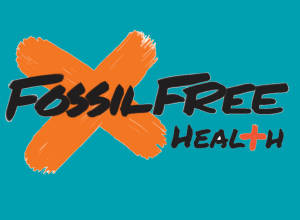Fossil Free UK
STEP 1:
Pick a Target & Build a Team
We’re all connected to institutions who shouldn’t be supporting the fossil fuel industry — whether it’s your church group or local government, there’s help and support to start a campaign at an institution close to you.
Step 5 Turn up the Heat Step 6 Stay Connected Step 7 Win! Resources Tips, Guides, Factsheets and more Divestment Arguments Reasons to Divest
Picking your target
Local government
Local government in the UK manages £225 billion through their pension funds and reserves, with large holdings in fossil fuels. More information about how local governments work, existing campaigns around the country and how to join in can be found here. This network is being supported by 350.org and others.
Universities
![]() UK universities and colleges have £5.2bn invested in fossil fuel companies, and also support the fossil fuel industry through their research and partnerships with some of the worst-offending companies. Students, staff and alumni are taking action all over the UK and you can find more information and get linked in through People & Planet.
UK universities and colleges have £5.2bn invested in fossil fuel companies, and also support the fossil fuel industry through their research and partnerships with some of the worst-offending companies. Students, staff and alumni are taking action all over the UK and you can find more information and get linked in through People & Planet.
Faith institutions
 Across the world faith groups have been helping lead the way on fossil fuel divestment. Through the Bright Now campaign, Operation Noah are working with churches and the Christian community in the UK to divest from fossil fuels, and pressuring denominations including the Church of England and Methodists.
Across the world faith groups have been helping lead the way on fossil fuel divestment. Through the Bright Now campaign, Operation Noah are working with churches and the Christian community in the UK to divest from fossil fuels, and pressuring denominations including the Church of England and Methodists.
Grassroots Oil Vey campaign is leading the way in the Jewish community.
Health institutions
 Climate change is the ‘public health challenge of our time’ according to many in the medical community, and Medact and Healthy Planet UK through Fossil Free Health are calling on the health community to divest.
Climate change is the ‘public health challenge of our time’ according to many in the medical community, and Medact and Healthy Planet UK through Fossil Free Health are calling on the health community to divest.
Other institutions
Trusts and foundations, charities and other organisations are also committing to divest. Divest:Invest focus on the philanthropic sector, and all other organisations committing to divest will be added to the divestment commitments and celebrated if you let us know.
Build a team
Building a campaign team is important, but it’s ok to start small. Get people you know together and ask around groups working on similar issues in your area for people who might be interested.
Divestment Campaigners’ Top tips:
Who better to take advice from than those already campaigning to divest their local authorities from fossil fuels? Here we share their top tips for building a strong team:
- Have an agenda for the first meeting. Lay out what information you’ve got and make sure there’s time for people to introduce themselves and why they’re there.
- Building the trust and friendship between team members helps us work together, so make time to get to know each other. Socials are good.
- Understanding what people’s skills and interests are is important, and a diversity of skills and experience will help the campaign.
- Internal email lists, Facebook groups and a shared dropbox, google-drive or online tasks dashboard can be useful for communications between meetings.
- Regular meetings are important to keep up momentum.
- Different people will be able to have different levels of involvement, and it’s important to cater for that – not everyone has to come to every meeting.
- Some groups use consensus decision making techniques to ensure that everyone in the group is listened to.